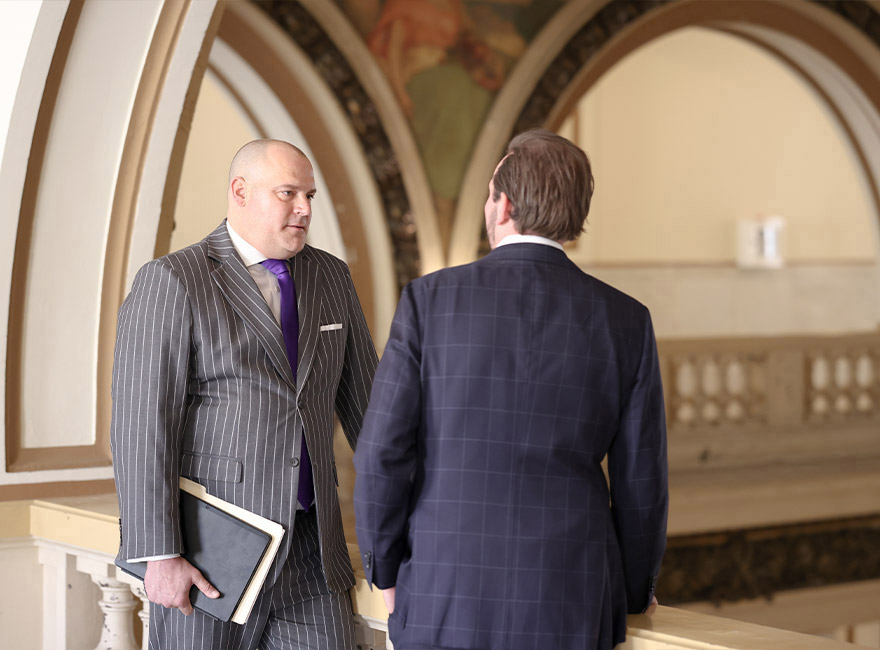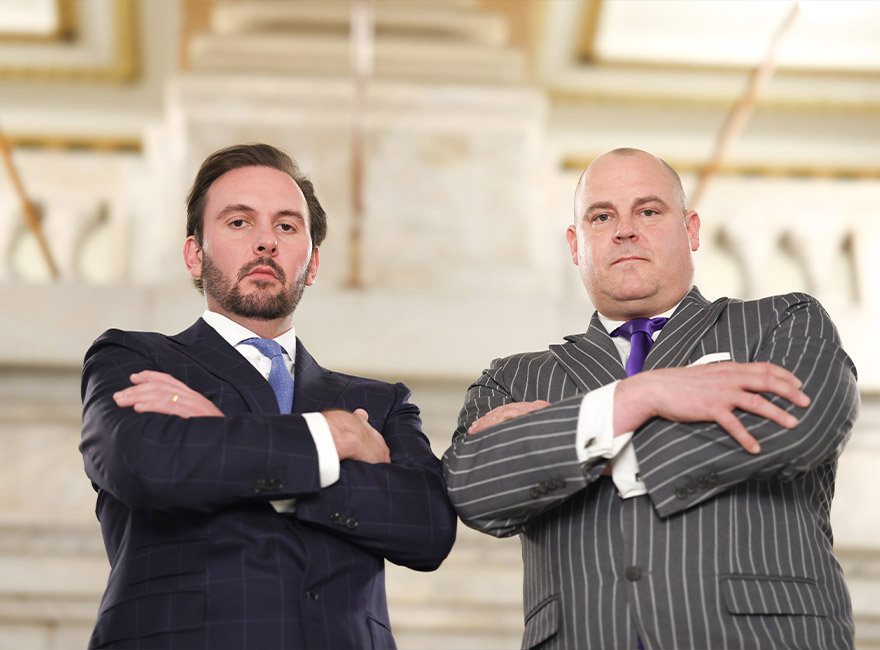
What Is a “Causing Catastrophe” Charge?
Missouri’s statute punishing offenders for causing a catastrophe is unusual. Among nearby states, only Illinois has a similar law. Iowa, Kansas, Oklahoma, and Missouri’s other neighbors do not.
The choice of the word “catastrophe” is somewhat misleading because of its association with natural disasters. However, the word is appropriate for capturing the scope of the events the law covers.
Perhaps a better title for this offense would be “causing events with catastrophic outcomes” rather than “causing catastrophe,” as this title more accurately describes the purpose of the law. Specifically, this statute creates a special offense when someone acts knowingly to cause events that result in multiple injuries, deaths, or properties lost.
Missouri’s Causing Catastrophe Statute
The Missouri Revised Statutes include the causing catastrophe law in the chapter on Offenses Against Public Order. This statute prohibits anyone from knowingly causing a catastrophe.
The definition of catastrophe has two parts. First, it must result from one of the following causes:
- Explosion
- Flood
- Fire
- Collapse of a building
- Release of poison, radioactive material, bacteria, virus, or other dangerous and difficult-to-confine force or substance
Second, it must produce the following results:
- Death or serious physical injury to 10 or more people
- Substantial damage to five or more buildings or inhabitable structures
- Substantial damage to a vital public facility, seriously impairing its operation or use
For the purposes of the law, “vital public facilities” include the following:
- Bridges over land or water
- Dams
- Reservoirs
- Tunnels
- Communication installations
- Power stations
To qualify as a catastrophe, an event must satisfy both parts of this definition. Thus, detonating a truck bomb might trigger a catastrophe, while discharging a semi-automatic firearm probably wouldn’t, even if they both result in the same number of casualties.
State of Mind Required for Causing Catastrophe Charges in St. Louis
Under Missouri law, a person acts knowingly when they’re aware that the nature of their conduct is “practically certain” to cause the prohibited result. As such, the causing catastrophe law doesn’t criminalize natural disasters because no one knowingly causes them. More importantly, it doesn’t punish people for unfortunate accidents.
For example, suppose that a building maintenance worker incorrectly connects a furnace, and the resulting explosion kills several people and burns down a neighborhood. Such an event would arguably qualify as a catastrophe, depending on the number of injuries, deaths, and buildings.
However, the maintenance worker would probably escape prosecution for causing a catastrophe because they didn’t act knowingly. In this case, prosecutors and fire investigators might pursue other charges.
If they determine that the maintenance worker acted recklessly, they might bring charges for reckless burning or exploding and first-degree involuntary manslaughter. If they believe the worker was criminally negligent, they might file charges for negligent burning or exploding and second-degree involuntary manslaughter.
Examples of Causing Catastrophe Charges in St. Louis
You might think St. Louis’s causing catastrophe law was passed in response to 9/11 or the Oklahoma City bombings since it covers mass-casualty terrorist attacks. However, the statute dates back to 1977, long before either of those tragic events.
While the catastrophe statute includes mass-casualty terrorist events, it isn’t limited to them. Even so, these charges are very rare. Three recent examples illustrate how prosecutors use this charge.
First, prosecutors charged James Scott with causing catastrophe because of his role in the Great Flood of ‘93. They alleged that he moved sandbags supporting the levee to cause it to fail.
Although scientists and engineers disagreed on whether Scott’s actions caused the resulting flood, he was convicted of causing catastrophe in two separate trials. He was the first person in the U.S. convicted under a causing catastrophe statute.
Thu Hong Nguyen faced the same charges in 2015 after allegedly setting fire to her business to collect an insurance check. The business was on the ground floor of a multi-story building that included apartments. The building collapsed, killing two firefighters. Nguyen was acquitted of causing catastrophe but convicted of arson and murder.
Lastly, a suspect in the 2024 Super Bowl parade shootings was charged with murder, gun violations, and causing catastrophe. Importantly, prosecutors didn’t allege that the indiscriminate firing of a gun constituted a catastrophe. Instead, they claimed that the stampede of parade attendees caused by the shooting constituted a catastrophe.
Defenses Against Causing Catastrophe Charges in St. Louis, MO
The criminal defense strategies we raise on behalf of clients facing charges of causing catastrophe depend on the prosecution’s allegations. Here are some examples of the possible defenses that may apply to your case:
Alibi
We can assert that you weren’t present or physically incapable of causing the catastrophe. For example, if prosecutors allege that you rented a vehicle and set off a car bomb in St. Louis, we can provide an alibi that you were in Des Moines at the time of the blast.
Mistaken Identity
Eyewitnesses and forensic evidence have limitations. In many cases, they point at the wrong person.
For example, suppose that prosecutors accuse you of setting a fire at your workplace based on trace DNA evidence and witnesses who saw you there. The fact that you work there could mean that both circumstances have innocent explanations. Your lawyer could easily point out that anyone who worked there could have set the fire.
No Catastrophe
Catastrophes must meet both elements of the statutory definition to be a convictable offense. If prosecutors fail to prove either element, they can’t get a conviction. Therefore, we can argue that the event didn’t result from any of the listed causes or that it didn’t produce any of the listed consequences.
No Intent
Prosecutors must also prove that you willfully caused the catastrophe. If you acted accidentally or negligently, they can’t establish that you had the requisite intent for a conviction.
For example, let’s say prosecutors charge you with causing catastrophe after a fire that started when you burned trash in your yard. We might be able to get the charges reduced to negligent burning by showing that you didn’t deliberately cause the catastrophe but rather acted carelessly in containing your trash fire.
No Causation
A catastrophe is a big event. We can argue that the actions of one person didn’t cause the alleged catastrophe. For example, evidence might show that your actions in deliberately ramming a support couldn’t have caused a bridge collapse without other forces outside your control, such as wind and corrosion.































